ODI Staff
Meet the many people at Education Development Center who lead or work on data education-focused research and development projects. Questions? Email oceansofdata@edc.org.
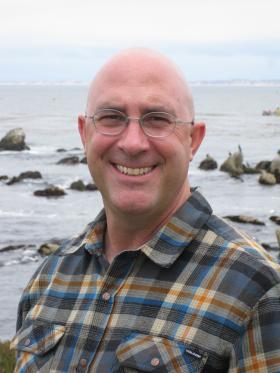
Managing Project Director, EDC
Randy Kochevar has expertise in marine biology and conservation, promotion of data literacy, Web development, research, and science communications. He brings passion for science and conservation—as well as a proven ability to make complex scientific concepts engaging and comprehensible for diverse audiences—to his R&D of innovative online educational resources for teachers, students, and the public. Kochevar leads teams that work to transform K–16 science education to support students' entry into a world of big data through instructional design, research, and strategic partnerships with education and industry leaders. Kochevar shares his expertise in helping scientific research programs design and implement effective educational and outreach programs at the national conferences of organizations such as the American Geophysical Union. Kochevar obtained his PhD in Deep-Sea Physiology from University of California-Santa Barbara and earned his BS in Biology from Colorado College.
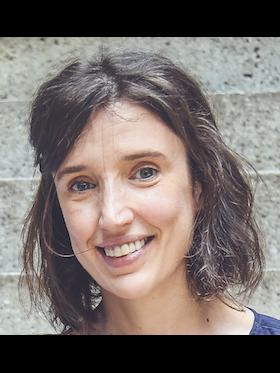
Research Scientist, EDC
Amy Busey leads and contributes to a diverse array of initiatives that support teachers in ensuring students’ STEM proficiency and school, college, and career success. She brings significant experience in quantitative and qualitative research, strategic dissemination, and promotion of knowledge utilization. Her most recent work is deepening understanding of effective strategies to foster students’ data literacy and bridge STEM education research and practice. Busey is currently leading EDC’s team on the Building Insights through Observation project and is a researcher on the Streams of Data project. She was a primary author of the Visualizing Oceans of Data report—a groundbreaking effort to provide guidelines to support interface and tool designers in bridging cyberinfrastructure to classrooms, enabling students to work with large, high-quality scientific datasets. She played a key role in the Ocean Tracks project, which developed and tested powerful Web-based visualization and analysis tools derived from state-of-the-art knowledge about how to support student inquiry with data, and worked collaboratively with the Concord Consortium and the University of Minnesota on the CODAP (Common Online Data Analysis Platform) and with GMRI on the Real World, Real Science project. Busey is the lead author of the article “Harvesting a Sea of Data” published in the Summer 2015 issue of The Science Teacher. Busey holds an EdM in Mind, Brain, and Education from the Harvard Graduate School of Education and a BS in Psychology from the University of North Carolina at Chapel Hill.
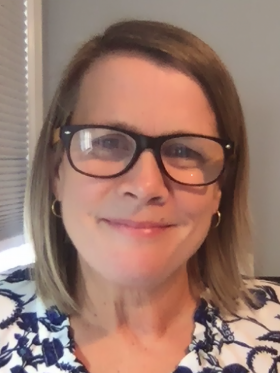
Project Director/Senior Curriculum Designer, EDC
Emily Fagan, an expert in mathematics and social studies education, develops innovative and effective learning experiences for students and teachers. She has extensive expertise in instructional design, professional development, instructional coaching, and strategies to promote the success of all learners. She has led the development of the student data investigations and accompanying teacher PD for the SDLC and WeatherX projects at EDC. Before joining EDC, Fagan taught high school and middle grades mathematics and social studies. She prioritizes designing and delivering innovative student materials and meaningful and relevant face-to-face and online courses and workshops for teachers. Fagan earned an AB from Harvard in Economics with a concentration in Mathematics and is a certified mathematics and social studies teacher.
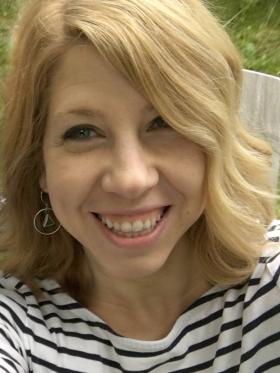
Curriculum Developer, Streams of Data
Erin Bardar led the Ocean Tracks College Edition curriculum development team. She was also project director and curriculum team lead for EDC’s part in the NASA-funded Real World Real Science project, and was a key contributor on the Zoom In to Science project. She is currently leading curriculum development on the Streams of Data project. Erin brings 15 years of experience in Earth and space science curriculum development, teacher professional development, and education research to her ODI work. She holds an ScB in Physics from Brown University and a PhD in Astronomy Education Research from Boston University.
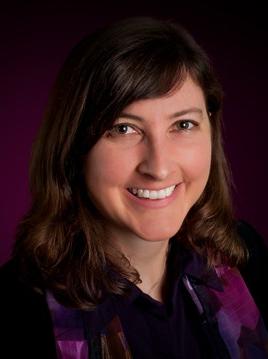
Evaluator, Streams of Data
Ginger Fitzhugh brings 18 years of experience evaluating educational projects and programs. Fitzhugh has expertise in evaluating informal and formal education programs in K-12 and higher education settings, and currently specializes in evaluating efforts designed to increase diversity in STEM (science, technology, engineering and math). Fitzhugh also has an interest in applying systems principles to evaluation, and recently served as the Program Chair of the American Evaluation Association’s Systems in Evaluation Topical Interest Group. She brings a strong commitment to the use of research and evaluation as a means of strengthening programs and services for educators and young people. She was a research and evaluator on NASA's Real World, Real Science project and is currently an evaluator for the Streams of Data project. Fitzhugh received a BA from Swarthmore College, and a Master of Management from the Heller School for Social Policy and Management at Brandeis University.
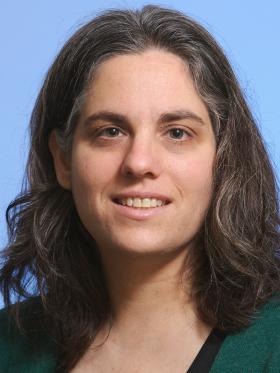
Researcher, Streams of Data
Jackie DeLisi brings nearly 20 years of experience in the field of education as both a researcher and a practitioner. Her primary research interests include understanding the intersections between school organizations, pedagogy, and students’ adoption of scientific and engineering practices. Her work also focuses on instrument development, including determining psychometric properties, to measure school, teacher, and student outcomes. DeLisi is a co-author of the report Visualizing Oceans of Data: Educational Interface Design. She also served as a researcher on the Ocean Tracks and Real World, Real Science projects. DeLisi earned a BA in Chemistry from New York University, an MA in Curriculum and Instruction from the University of Colorado at Denver, and an EdD in Administration, Training, and Policy Studies from Boston University."

Researcher & Evaluator
Jessica Sickler is an experienced evaluator, researcher, and educator with more than 10 years of experience studying learning across the spectrum of informal learning environments. One area of professional interest is the intersection of formal education settings with real-world resources (such as scientific data or museum collections), and how strategies from informal learning settings can enhance classroom environments. She has worked with EDC on several projects, including Ocean Tracks, Ocean Tracks College Edition, and Real World Real Science. Sickler received an M.S.Ed. in Museum Education from Bank Street College of Education and a B.A. in Environmental Analysis & Policy from Boston University. She also runs her own evaluation and research firm, J. Sickler Consulting.
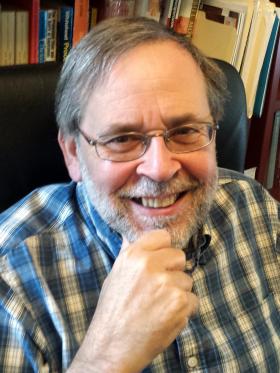
Project Director/Advisor, EDC
Joe Ippolito’s 20+ year career at EDC has centered on the design and implementation of career-focused education programs. Currently, he is the project director for EDC's Creating Pathways for Big Data Careers initiative. He has directed several U.S. Department of Labor and U.S. Department of Justice projects that have provided comprehensive career training and support services to at-risk high school youth, out-of-school youth, and adjudicated youth and adults. Most recently, his work has focused on developing tools that define and help measure the performance of newly emerging occupations. He received an MA in Religious Studies from the Divinity School of the University of Chicago and a BA in Religious Studies from Duke University.
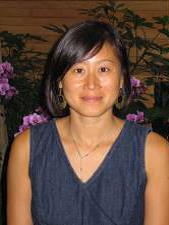
Principal Research Scientist, EDC
Josephine Louie is an education research and development leader. As principal investigator of initiatives funded by the National Science Foundation, among others, she works to improve the quality and equity of K-12 learning. Her focuses include critical data literacy, civic statistics, environmental literacy, education policy, STEM education, and technology integration. Louie leads EDC's Data Paths,Strengthening Data Literacy across the Curriculum, and WeatherX initiatives. She is the research lead of the Innovation Pathways to Data Careers (IPDC) project. She was the co-principal investigator of Ocean Tracks. Louie received an EdM and EdD from the Harvard Graduate School of Education, a master’s in city planning from Massachusetts Institute of Technology, and an AB from Harvard College.
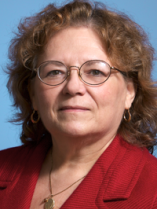
PI, Creating Pathways for Big Data Careers, Innovation Pathways to Data Careers (IPDC), and Mentoring New Data Pathways in Community Colleges
Joyce Malyn-Smith is a national expert on STEM career and workforce development with a deep knowledge of how learners develop skills in formal and informal settings to prepare for productive and rewarding work life. She has a special interest in the innovation economy and how technology and informal learning can spark creativity and cultivate and sustain interest in STEM careers. She received a BS from Universidad Interamericana in Puerto Rico, an MEd from Boston State Teacher’s College, and an EdD in Bilingual Education Leadership and Career Education from Boston University, where she was a U.S. Department of Education Fellow.
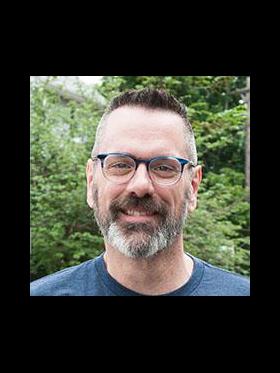
Senior Project Director
Kevin Waterman is a STEM education expert and educational innovator. An experienced project director and instructional designer, he leads education R&D initiatives that broaden participation to underserved or underrepresented student populations and support teachers in improving students’ learning and achievement. Currently, he is designing tools and curricula to help teachers foster students’ data literacy and build their computational thinking across disciplines. Waterman is the co-principal investigator of EDC’s WeatherX project, which is helping rural students gain data literacy skills. He is also co-leading an initiative to integrate computational thinking into EDC’s award-winning Insights elementary science curriculum. Previously, he contributed to the Broadening Participation in Computer Science initiative. Waterman holds an MAT in Mathematics Education from Boston University and a BA in Mathematics from Trinity College.
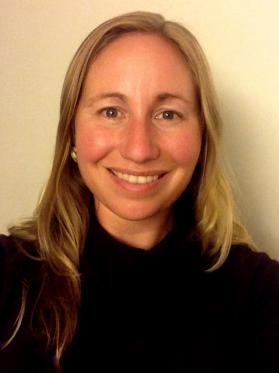
Project Director, EDC
Leana Nordstrom facilitates the Data Pathways Community of Practice—a group of community colleges working towards creating data programs at their institutions—for the Mentoring New Data Pathways in Community Colleges project. Nordstrom has worked at Education Development Center, Inc., for over 14 years focusing on K–12 STEM education in both informal and formal settings. Prior to EDC, Nordstrom worked for Public Interest GRFX, the in-house communications department that designed and managed the publications and websites for nonprofit organizations such as Environment America, US PIRG, and Green Corps. She also served as an environmental education extension agent in Senegal, W. Africa for the Peace Corps. Nordstrom holds a BA in Environmental Science.
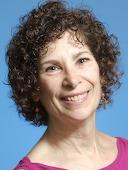
Distinguished Scholar, EDC
Lynn Goldsmith brings more than 30 years of research experience to the study of learning and teaching. She has directed research for curriculum development projects, studied professional development for teachers, investigated principals’ instructional leadership for mathematics, examined the role that emotions play in learning, and explored relationships between arts education and mathematical reasoning. Goldsmith has also written about mathematics education for the research community, practitioners, and parents. She currently directs the NSF-funded project, Integrating Computational Thinking into the Insights Elementary Science Curriculum, which is developing NGSS-aligned science units for grades 1 and 4, with particular attention to use of computational thinking.
She directed the research on EDC’s Young Mathematicians K–5 curriculum, supervised the research component of several professional development projects at EDC, including Turning to the Evidence, Supporting Staff Developers, and Formative Assessment in the Mathematics Classroom: Engaging Teachers and Students (FACETS), all funded by the National Science Foundation (NSF). With colleagues from Boston College and Massachusetts College of Art and Design, she investigated the connection between arts and geometric thinking and is currently collaborating on a project with Artists for Humanity, an after-school workforce development program for high school students, to infuse STEM thinking into the design and development of works of art. Goldsmith has also collaborated with colleagues at Mills College, Syracuse University, and WestEd. Goldsmith's recent publications include Mathematics teachers’ learning: a conceptual framework and synthesis of research, A framework for the facilitation of teachers’ analysis of video, and Examining Mathematics Practice Through Classroom Artifacts (co-authored with Nanette Seago). She has authored or coauthored articles for parents and practitioners about math education, The Fostering Algebraic Thinking Toolkit: A Guide for Staff Development, and several guides for selecting rigorous curriculum materials (Choosing a Standards-Based Mathematics Curriculum and the series Guiding Curriculum Decisions for Middle Grades—for language arts, mathematics, and science). She has also written about child prodigies, including coauthoring Nature's Gambit: Child Prodigies and the Development of Human Potential. Before joining EDC, Goldsmith held research positions at Tufts University and TERC and taught at Middlebury College. She received a BA in psychology from Yale University and a PhD from the Institute of Child Development at the University of Minnesota. She did postdoctoral studies at Massachusetts Institute of Technology.
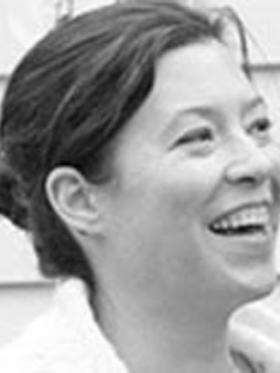
Senior Research Scientist, EDC
Megan Silander conducts research that generates new insights into effective preK–12 education policies and programs. Her current research focuses on media, technology, and learning, including effective ways to incorporate digital tools, such as games and educational software, into classroom instruction to improve student learning. Megan is the EDC lead for the Building Students' Data Literacy through the Co-design of Curriculum by Mathematics and Art Teachers project, which is a National Science Foundation-funded collaborative project with researchers at NYU and Fordham University. She was co-Principal Investigator of the National Science Foundation-funded Zoom In! Learning Science with Data, a project that designed, developed, and tested digital curricula and tools that build high school students’ skills in using data to investigate and explain significant problems in biology and earth science. Megan brings experience with quantitative and qualitative data collection and analysis, experimental and quasi-experimental methods, and the analysis of extant and district administrative data. Megan holds a PhD in education policy from Teachers College, Columbia University; an EdM in international education policy from Harvard Graduate School of Education; and a BA in linguistics from Pomona College.
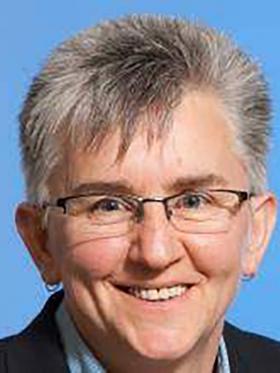
Director of Rural STEM Initiatives, EDC
Pam Buffington, a national expert in rural education and mathematics education, guides policymakers, education leaders, and teachers in improving K–12 student outcomes. She brings extensive experience in rural education, place-based learning, research, and distance learning networks to her leadership of EDC’s Rural and Ready STEM initiative. Buffington specializes in expanding access to high-quality STEM education, closing opportunity gaps in mathematics education, and bridging research and practice. Buffington holds a PhD in Education from the Union Institute, an MA in Curriculum and Instruction from Lesley College, and a BS in Secondary Education and Mathematics with a minor in Physics from the University of Maine at Farmington.
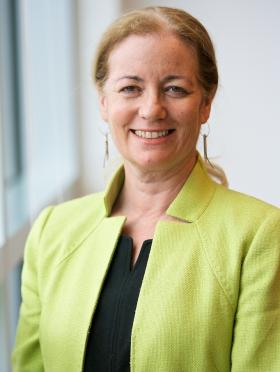
Co-Founder & Advisor, ODI
Ruth Krumhansl is an expert in curriculum development, education research, earth science, science teaching, and applied science. Her work has a special focus on the design of Internet-based tools that bring authentic scientific data into K–16 classrooms. Krumhansl leads research that is advancing the field's knowledge of how students learn to work with data and is drawing upon findings to design innovative instructional resources that help teachers foster students’ data literacy, build their capacity to work with complex datasets, and support their mastery of essential tools and techniques. She is the principal investigator of the NSF-funded Ocean Tracks College Edition study. She is lead author of EDC Earth Science, a full-year earth science course for high school stressing rigorous, inquiry-oriented learning, which was published by LAB-AIDS in 2014. In collaboration with SRI International and NASA, she contributed to the design of websites that allow teachers to access NASA’s remotely sensed Earth observation mission data. Krumhansl is currently an advisor on the Streams of Data project. Before joining EDC, Krumhansl was a high school science teacher and department coordinator, a chief scientist and senior project manager in environmental consulting on Superfund sites, and a petroleum exploration geologist. Her career in applied science immersed her in the search for patterns in complex geospatial data, providing a foundation for her current interest and work in preparing students to live in a data-intensive world. She has a BA in Geology from Bucknell University and an MS in Environmental Science from Antioch New England Graduate School.
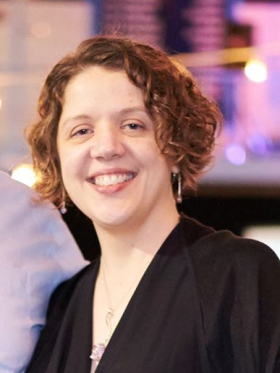
Project Manager, Mentoring New Data Pathways in Community Colleges
Sarah is the project manager for the Mentoring New Data Pathways in Community Colleges. In this role she designs and leads efficient workflow processes, guides the development of project tools and resources, and provides technical assistance through online meetings and presentations. For the past six years MacGillivray has worked to advance the goals of several National Science Foundation (NSF)-funded projects, including her work on the STEM Learning and Research (STELAR) Center, which focuses on broadening participation in STEM and preparing youth for success in the future workforce. MacGillivray brings a deep commitment to achieving equitable access to high-quality education for all learners. MacGillivray holds a BA in Sociology from the University of Massachusetts-Boston.
ODI Staff Alumni
Meet the staff who worked on past ODI projects such as Ocean Tracks, Real World, Real Science, ZoomIn! Learning Science with Data, and more!

PI, Zoom In! Learning Science with Data
Bill Tally leads education Research and Development that deepens understanding of how the strategic use of digital tools can make learning more rigorous, meaningful, and engaging. He brings deep expertise in interdisciplinary learning, the digital humanities, formative research, historical studies, and the sociology of education—as well as experience configuring digital archives to enable students, teachers, and the public to do authentic historical inquiry. Tally was the principal investigator of the Zoom In! Learning Science with Data project, funded by NSF. Bill received a BA in psychology from the University of California at Santa Cruz and an MA in liberal studies (with an emphasis on American cultural history) from the Graduate Faculty of the New School for Social Research. He holds a PhD in sociology from the Graduate Center of the City University of New York, where his dissertation examined children’s and parents’ use of the Web in low- and middle-income homes.
Curriculum Research and Development Intern
Currently, Colin Hill works as a research analyst in MDRC's Postsecondary Education Policy area. As an undergraduate, Colin served as a summer intern for EDC, helping advance a range of projects focused on promoting data literacy, including Zoom In! Learning Science with Data and the NASA-funded Real World, Real Science project. In addition to his work as a teaching assistant for Yale's Department of Statistics and Data Science, Colin worked with Teach for America to develop and teach a 2-hour workshop about using data literacy as a tool for community organizing, and taught a number of hands-on "crash courses" on data literacy to middle-schoolers and high-schoolers around the New Haven area.
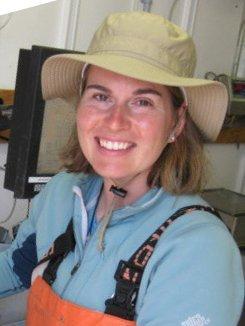
Teacher Advisor
Julianne Mueller-Northcott was part of the development team for the Ocean Tracks interface, which has allowed high school students to investigate ocean-related questions using authentic tracking data from marine species. She also served as a key member of the curriculum development team for Ocean Tracks: College Edition, which designed investigations to help undergraduate students build data analysis skills through scientific data investigations. In addition to her contributions to the Ocean Tracks project, Julianne has been teaching science (living systems, earth systems and marine biology) at Souhegan High School in Amherst, NH, since 2000.
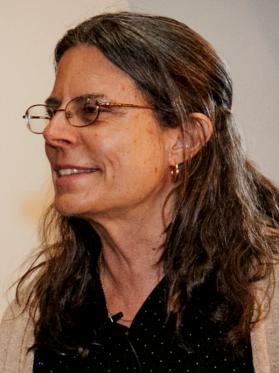
Co-Founder, ODI
Kim Kastens, an oceanographer and geoscience education researcher, served as distinguished scholar in EDC’s Learning and Teaching Division and principal scientist for the Oceans of Data Institute prior to becoming an advisor. Kastens worked closely on ODI’s Big-Data-Enabled Specialist Profile, and wrote the subsequent white paper Data Use in the Next Generation Science Standards. She is the lead author of Thinking Big: Transitioning Your Students from Working with Small Student-Collected Data Sets towards Big Data, which lays out ODI’s proposed learning progression towards proficiency with large, professionally collected data sets around ill-structured problems. Kastens brings more than 20 years of experience working at the nexus of science and education. She holds a doctorate from the Scripps Institution of Oceanography and a bachelor’s degree from Yale University. She currently serves a special research scientist at the Lamont-Doherty Earth Observatory of Columbia University.
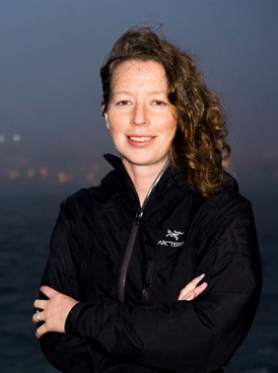
Co-PI, Zoom In! Teaching Science with Data
Kira Krumhansl was co-PI on the Zoom In! Teaching Science with Data project. She was also the science coordinator for the Ocean Tracks College Edition project, and worked previously in this role for the Ocean Tracks Phase 1 project. As science coordinator, she acted as a bridge between scientists and educators, and works on curriculum development, research, and dissemination. She also worked on the Visualizing Oceans of Data Knowledge Status Report, and is participating in a number of other development projects in ODI. She has a background in marine ecology, having completed a PhD at Dalhousie University in Halifax, Nova Scotia. She is also currently a postdoctoral researcher at Simon Fraser University in Vancouver, British Columbia. Her scientific research focuses on understanding the role of humans in altering kelp forest ecosystems.
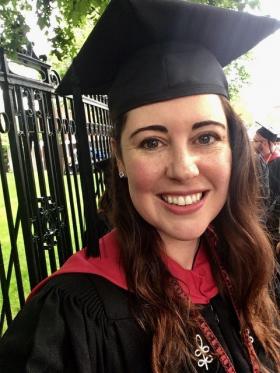
Curriculum Designer, Exploring Urban Mobility
Libby is an experienced educator with over 10 years of experience in teaching middle and high school science, in addition to coaching rowing. Currently, she is developing Urban Mobility curriculum for the Exploring Urban Mobility: Using Data to Solve Problems of the Future project. Her work prompts students to develop data literacy skills by examining and analyzing emergency evacuation data from Hurricane Katrina. Libby holds an ScB in Human Biology from Brown University and an EdM from the Harvard Graduate School of Education.
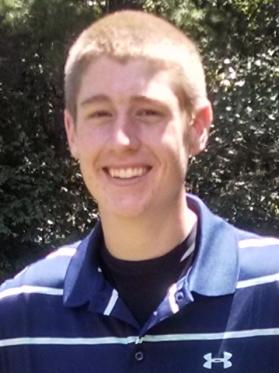
Research Assistant, ODI
Patrick interned with the Oceans of Data Institute from January-August 2016 and was involved in the curriculum research and development efforts on various ODI projects. He worked as a part-time research assistant for ODI, while also pursuing a Bachelor’s of Science in Mathematics, with a focus in Secondary Education, at Northeastern University. Prior to interning with ODI, Patrick worked as a data analyst.

Lead Technology Developer, Ocean Tracks
Virgil Zetterlind was the lead technology developer for the Ocean Tracks effort and has been building 'big data' applications with a focus on remote sensing and mapping since the earliest days of Google Earth. As co-founder of Conserve.IO, Virgil spearheaded development of the NOAA Whale Alert mobile application - one of the 1st government efforts to leverage crowd-sourced animal sightings for conservation and now a family of applications in support of Whales, Butterflies, Sharks, and more worldwide. He is currently the manager of ProtectedSeas, a focused effort to raise awareness of and compliance with Marine Protected Areas through mapping and monitoring. A US Air Force veteran, Virgil holds a Masters Degree in Electrical Engineering from the Air Force Institute of Technology.
